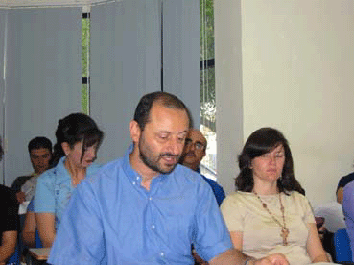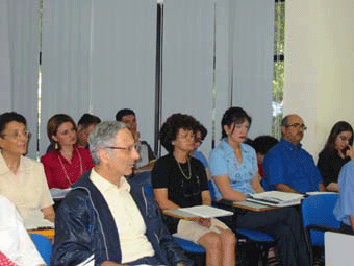

On Monday 5 May, Professor Godfrey Baldacchino, Director of the Workers' Participation Development Centre addressed the Press announcing the full results of a WPDC research project on the factors affecting women's formal participation in the Malta labour market. Present at the press conference were the 25 students following the Gender and Development diploma course.


Professor Baldacchino stated that with a female participation rate hovering at about 33%, Malta ranks lowest on this score amongst all 28 member states, accession states and candidate countries of the European Union. Women's share of total employment remains a low 29%, while local female self-employment is also very low, standing at just 5%.
Interesting results have now emerged from a study carried out by the Workersí Development Centre of the University of Malta about the involvement of Maltese women in the formal economy. A national random sample of 998 women aged between 18 and 60 was contacted in December 2002. Those indicating that they did not work were interviewed face-to-face by students following a Gender & Development Diploma course, run by the WPDC at the University of Malta. 68 women refused to be interviewed.
The study confirms that marriage and parenthood dissuade many women in Malta from either entering or persevering in the formal economy. Female participation rates are higher in the North of Malta; higher amongst younger women and higher amongst more educated women.
The study finds evidence of women who are prepared to take up economic activity as long as this does not clash with family responsibilities. It also suggests that the actual female participation rate of women in Malta is some 9% higher than what official statistics indicate.
Levels of taxation and of social security contributions act as disincentives to women - both to enter the labour market as well as to declare their income should they do so.
The study also identifies a category of women who perform 'market work' but for which they are not necessarily earning a formal income. This category is missed out by official statistics.